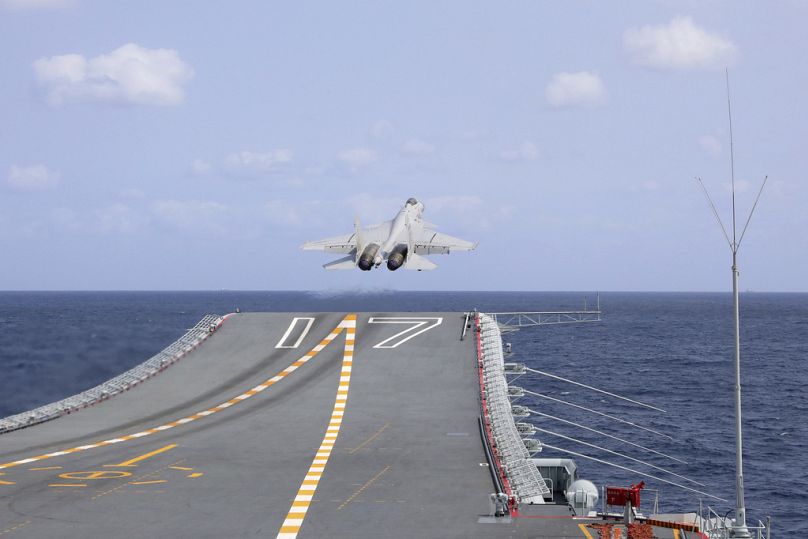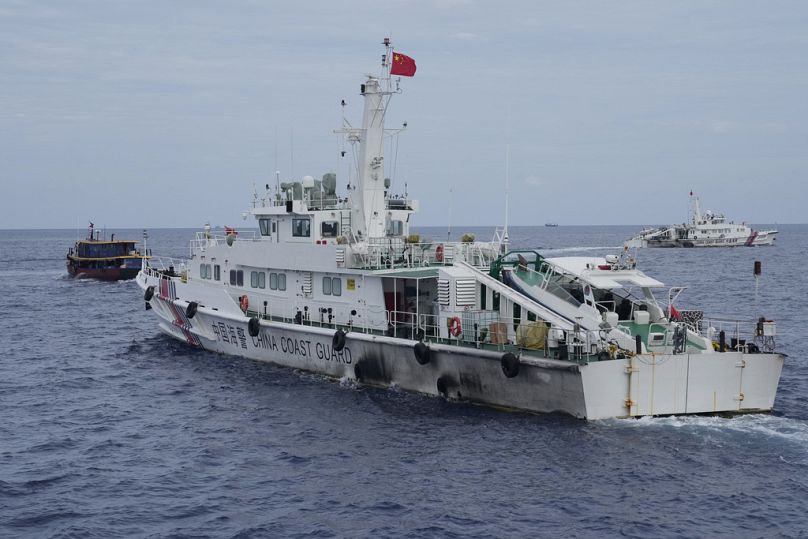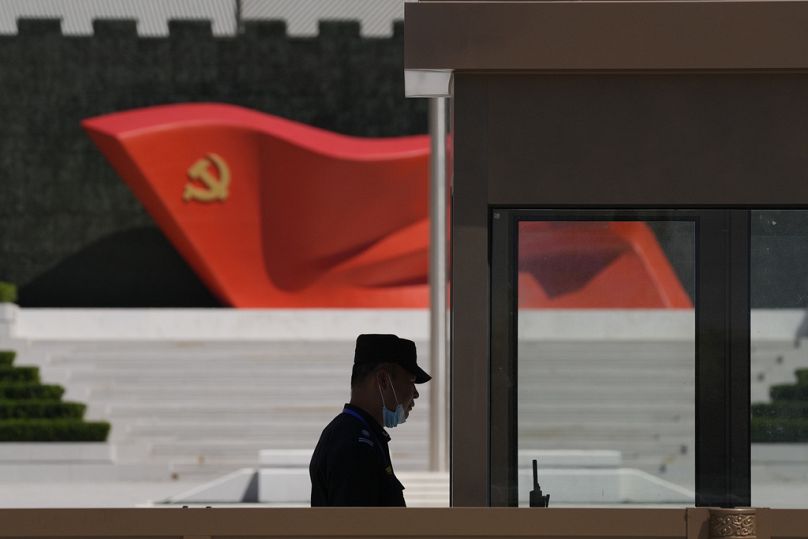It is vital that China’s increasingly hostile and unpredictable diplomatic and military policy is taken seriously. We only must look at the war in Ukraine to see where complacency gets us, Saman Rizwan writes.
Once again conflict has almost erupted in the South China Sea.
 ADVERTISEMENT
ADVERTISEMENT
 ADVERTISEMENT
ADVERTISEMENT
Last week, members of the Philippines Coast Guard cut through a 1000-foot-long barrier installed by Chinese vessels that was blocking access to the Scarborough Shoal – a group of Filipino islands illegally occupied by China.
A tense stand-off ensued with Chinese coast guard vessels filmed harassing Filipino fishermen attempting to access the shoal.
But incidents like this in the South China Sea are nothing new. In fact, this year has seen a significant increase in the level of harassment aimed at The Philippines and other nations in dispute with China over its absurd “nine-dash-line” claim to the entire sea.
This has been happening at the same time China deliberately stoked territorial disputes with India, disappeared a number of senior diplomatic and military figures, and skipped the G20 summit.
But the world can’t afford to make the same mistake it did with Ukraine - where it chose to ignore obvious warning signs that Russia was gearing up for an invasion.
And it is very possible China is preparing for war.
China to 'fight and win wars'?
Beijing’s military build-up has been so rapid it’s left many fearful they will move ahead of the US as the world’s strongest military power. China’s navy is set to grow 40% by 2040 and they currently can acquire weaponry five times faster than the US.
Last year, President Xi Jinping proclaimed that China should become capable of “fighting and winning wars” by 2049. But many of China’s neighbours fear that date may come much sooner, especially as China grapples with unprecedented economic troubles.
Nowhere is this concern more real than in the South China Sea. For years now, China has been harassing vessels and building military bases and airstrips on disputed island chains where they can project their military strength.
ASEAN bloc nations remain particularly vulnerable to this encroachment and aggression. Yet even this has not been enough to unite them, and many ASEAN countries face their own internal territorial disputes which threaten key partnerships.
Few paid attention to the Sultanate of Sulu
For example, last year, relations between The Philippines and Malaysia came under unnecessary strain when the heirs of the long-defunct Sultanate of Sulu were awarded an enormous $15 billion (€14.3bn) settlement in a controversial arbitration case against the Malaysian government.
Rooted in a decades-old territorial dispute over the Sabah province, which led to deadly clashes in 2013, former NATO analyst Maurizio Geri illustrated the multinational interest in the region by claiming that underneath the legal dispute lies a covert struggle between American tech giants and China, who are competing for control of subsea internet cables within the South China Sea.
Fortunately, this dispute has been unequivocally quashed by judiciaries in Madrid, Paris, and the Hague. And the attorney responsible now finds himself ensnared in a criminal prosecution in Spain.
Yet, the case serves as a prime example of the fragility of relations in a region vulnerable to exploitation and conflict.
This vulnerability is why it is in the utmost interest of ASEAN nations to expand closer economic ties between each other and increase military drills that build regional collective security.
Yet there is also a pivotal role to be played by Western powers.
Beijing's unpredictability worsens every day
Key allies like the EU must work harder than ever to woo the Global South and strengthen ties with ASEAN nations.
See, many of the ASEAN nations have very close economic ties with China, which has enabled China to coerce and bully these states to align with Chinese interests in the region.
But with China’s economy on the brink of collapse, and the G77 bloc of nations calling for a “new economic world order”, the West must answer the call and offer stable economic partnerships to developing nations.
This means doing more to increase investment, open labour markets, and follow through on long-promised funds to help developing countries transition to sustainable systems.
But they can’t stop there. As US President Joe Biden strengthens ties with countries like Japan, South Korea, and Vietnam, and Australia looks to elevate relations with countries like the Philippines, the opportunity for a new security paradigm that includes the EU shouldn’t be off the table.
An Asian NATO might not be possible yet, but increased military cooperation — through drills, weapons procurement, and intelligence sharing — would help tip the scale away from China.
It is vital that China’s increasingly hostile and unpredictable diplomatic and military policy is taken seriously. We only must look at the war in Ukraine to see where complacency gets us.
Ultimately, China’s unpredictability worsens each day. But we still have an opportunity, not to prepare for war, but to prevent it.
Saman Rizwan is a UK-based analyst on South Asian affairs. As a journalist and commentator, she frequently writes for publications including South China Morning Post, The Diplomat, The Nation, Forbes, and Newsweek.
At Euronews, we believe all views matter. Contact us at view@euronews.com to send pitches or submissions and be part of the conversation.













